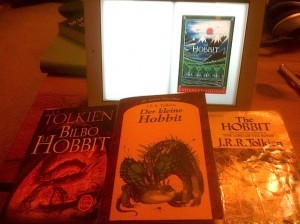
My rating: 1 of 5 stars
With all of the fuss I’ve seen made over Lev Grossman’s The Magicians, I feel like I rather missed something–because I outright loathed this book. And it takes a lot to make me loathe a book.
First of all, I kept seeing it get pitched over and over as “Harry Potter for grownups”, which came across to me as completely ignoring the fact that grownups all over the world have been cheerfully reading Harry Potter right alongside the children that are its primary target audience. Part and parcel with this was the corollary that The Magicians is a more grownup, nuanced, mature world, presumably because it’s darker or grittier or something, since the last couple of Harry Potters were of course all sunlight and rainbows and ponies. (Except, oh, wait a minute, no they weren’t.) I take issue in general with the idea that a book “for grownups” by definition has to be darker or grittier. Some grownups like to read stuff that isn’t unremittingly grim, and I happen to be one of them.
Second, if I’m going to have a book try to make a point to me about how very much it’s Not Being Harry Potter, you know what the last thing is that that book ought to be doing in order to keep me engaged as a reader? Reference Harry Potter repeatedly within the actual narrative, to drive home points like how our protagonists can’t just fix their teeth like Hermione Granger to make everything better. This happened at least twice that I can remember off the top of my head, and all it did for me was make the book come across as if it were jumping up and down yelling in my face, “HEY! I’M NOT BEING HARRY POTTER! LOOK HOW MUCH I’M NOT BEING HARRY POTTER! YOU KNOW WHY I’M NOT HARRY POTTER? BECAUSE LOOK HOW THE HARRY POTTER BOOKS ACTUALLY EXIST IN THIS UNIVERSE AND HOW I AM CLEVERLY REFERENCING THEM!”
And yes, the all-caps are pretty much how I felt about it, because it felt like the book was trying to drive that point home with a railroad spike into my skull, and pounding on it with a sledgehammer.
But third and most importantly, the main problem I had with this book was that I wanted to climb into its pages and punch each and every single person in the cast. All of them. I found absolutely no one in this story engaging, and I don’t care how realistic Grossman’s scenario of “in the real world, a school of magic would just generate a bunch of self-absorbed pricks with magical powers” might actually be. You know what you get in this scenario? You get a bunch of self-absorbed pricks, and the fact that they have magical powers does not in any way, shape, or form lessen their massive self-absorbed prickery.
And I don’t want to read about people like that. Especially our so-called hero Quentin, who spent the entire book being an emo little whiner and who showed no redeeming characteristics whatsoever. If he’d gained even a shred of nobility by the end, I might have thought differently about this book, but no.
To be fair, the first chunk of the story when our protagonists were going through all of their classes–despite the heavyhanded LOOK HOW MUCH I’M NOT BEING HARRY POTTER! screaming the book kept doing–was interesting. But once they graduated and we got into the sequence full of nothing but relationship angst, my urge to punch the lot of them rose dramatically. And by the time we got the big reveal of Fillory’s reality (which I can safely mention since that’s not a spoiler), I was so thoroughly disenchanted with these people that all that kept me reading to the end was a wisp of an acknowledgement that the author did have a compelling enough command of the language to keep my attention.
It’s just that no matter how well Grossman wrote, he was writing about thoroughly reprehensible characters in a setting that was unremittingly bleak. And I don’t need that in my life. The real world is bleak enough without subjecting myself to it in my reading. One star.







